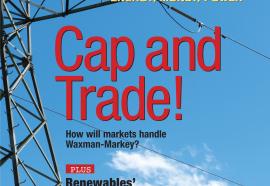Bringing Customers On Board
Realizing the benefits of smart meters.
Information is power, and through smart technologies utility customers will gain access to that information. The challenge faced by utilities is to harness consumer benefits by boosting customer acceptance and participation in programs designed to lower system expenses.










